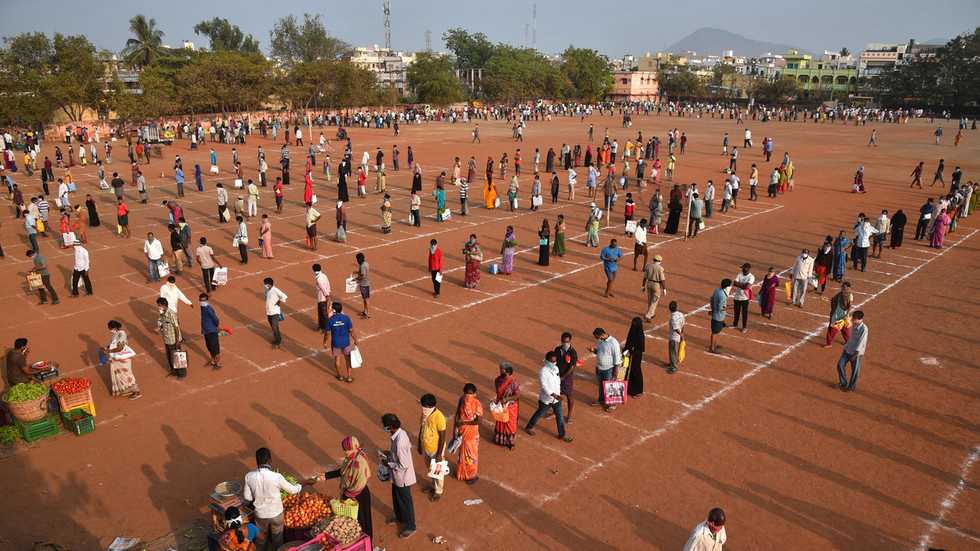
With its 21-day lockdown, India joined a long list of nations taking extraordinary steps to battle Covid-19 — and its results will determine the future of this worldwide pandemic. Can India help the world avert major catastrophe?
Indian Prime Minister Narendra Modi announced the unprecedented move on Tuesday to put “the entire country on lockdown” for three weeks until April 14. The PM told Indians that saving lives is his “first priority,” requested that people stay inside and reiterated that social distancing is the only way to break the cycle of the infection, which has spread rapidly around the world. “Step outside your house in the next 21 days and you will set the country back by 21 years,” Modi warned.
This is no exaggeration. Indeed, with a population of over 1.3 billion people, how India responds to this crisis now could determine the trajectory of the Covid-19 pandemic for the entire world. The future of the outbreak largely depends on what happens in large and densely populated countries like India, according to Dr. Michael J Ryan, executive director of the WHO health emergencies programme. Dr. Ryan cautioned on Monday that India must continue to take “aggressive action at the public health level and at the level of society to contain, control, suppress this disease and save lives.”
India’s Covid-19 challenges
It’s no surprise that India faces several major hurdles in its fight against Covid-19; insufficient healthcare funding, lack of clean water and hygiene facilities in several regions and the aforementioned high-density population, to name a few. It is estimated that around 420 people live on each square kilometer of land in many of the country’s largest cities — a situation which undoubtedly makes “social distancing” and “self-isolation” impossible without a strictly enforced lockdown policy — and even then, it will still be difficult.
An effective law governing public healthcare is another glaring gap in India’s fight against the Covid-19 pandemic. While the government has declared the disease a “notified disaster” under the Disaster Management Act – giving certain overriding powers to the central government over states and enabling more funds to be allocated to the crisis — the truth is that India lacks dedicated legislation for a pandemic situation. The primary law it resorts to in governing healthcare emergencies is the 123-year-old colonial-era Epidemic Diseases Act of 1897, which was enacted to fight the bubonic plague.
India’s preparedness to deal with the global pandemic therefore immediately appears inadequate, especially when viewed in the context of how badly developed countries like Italy, Spain, and the United States are faring — even with their relatively lower population densities and more advanced healthcare systems.
发表回复